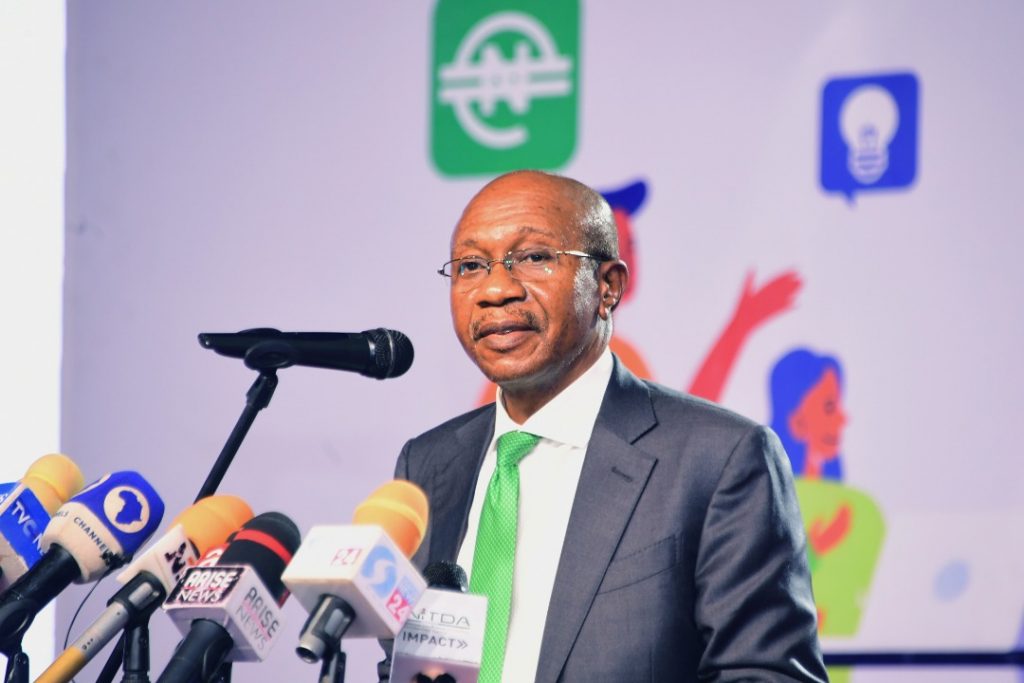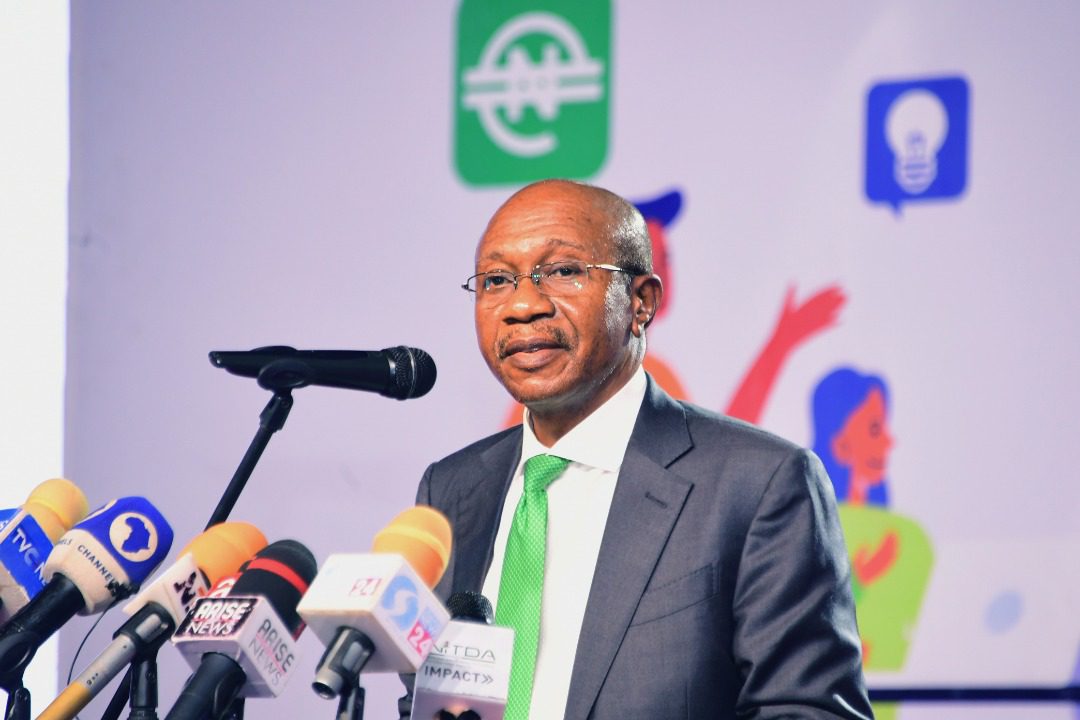…. says “There is the urgent need for a conscientious effort to diversify to other non-oil sectors.”

The Governor of the Central Bank of Nigeria (CBN), Godwin Emefiele, has revealed plans made by the CBN for the diversification of Nigeria’s economy from oil through the different intervention schemes which CBN has incorporated.
The CBN boss made this known during the 33rd Seminar organised by CBN for Finance Correspondents and Business Editors on Saturday in Abuja with the theme, ‘Policy Options for Economic Diversification: Thinking Outside the Crude Oil-Box’.
Although represented by the Director of Corporate Communication Department, Osita Nwanisobi, he (Emefiele) pointed out that the desire to build an agile economy had been the utmost plan of the CBN’s monetary policy, noting that Nigeria has largely depended on the oil sector for revenue generation over the past four decades.
Emefiele further hinged on the needs to build a broad-based and well-diversified economy that would guarantee overall macroeconomic stability.
In his words: “The quest for building a more sophisticated economy and agricultural, Micro, Small, and Medium Enterprises (MSMEs), industrial and manufacturing concerns have become the major component of our monetary policy.
Read also: CBN endorses new reward systems for eNaira users
“Nigeria has largely depended on the oil sector for revenue generation over the past four decades, and the sustained decline in crude oil production has continued to negatively undermine the performance of the economy.
“Thus, there is the urgent need for a conscientious effort to diversify to other non-oil sectors.
“As I have often said, it is important that we work to create an economy that will enable us feed ourselves, create jobs for our teeming youths and improve the standard of living of our people. With our population growing by over 3 percent per annum over the past seven years, against a less than steady growth in output since 2019, expanding the production and industrial capacity of the economy must be given special attention to ensure overall macroeconomic stability”.
Emefiele said the apex bank has supported non-oil sectors such as agriculture, manufacturing, healthcare, education, power, aviation, and other allied economic value chains, pointing out that Nigeria has become a rice exporting country, and the banks’ flagship Anchor Borrowers programme (ABP) has changed the long-standing dependence on imported rice.
He said the CBN had through its Commercial Agriculture Credit Scheme (CACS), supported commercial farmers in the country in different value chains including oil palm, cotton, and cocoa, among others.
The CBN Governor noted that the implementation of 44 items prohibited from foreign exchange for import had revealed that the bank’s continued support to the manufacturing sector and MSMEs was yielding great results.
According to Emefiele, the apex bank’s health sector intervention was beginning to reduce healthcare tourism, help to conserve the country’s foreign exchange and improve the well-being of Nigerians.
He further said that the new 100 for 100 Policy on Production and Productivity (PPP), which is targeted at harnessing local raw materials to increase domestic production, as well as exports through deliberate credit and other supports, will soon begin to yield quality results.
“Moreso, the RT200 FX initiative designed to take advantage of our large domestic production to other regional markets is targeted to increase foreign exchange inflows to the economy and support exchange rate stability. In addition, the on-going work at the Dangote Refinery, when fully completed, will stop fuel importation just as we witnessed in cement, sugar and fertilizer market.”


